Wednesday’s national accounts release from the Australian Bureau of Statistics (ABS) showed that the Australian economy fell into a per capita recession following two consecutive 0.3% declines in per capita GDP:
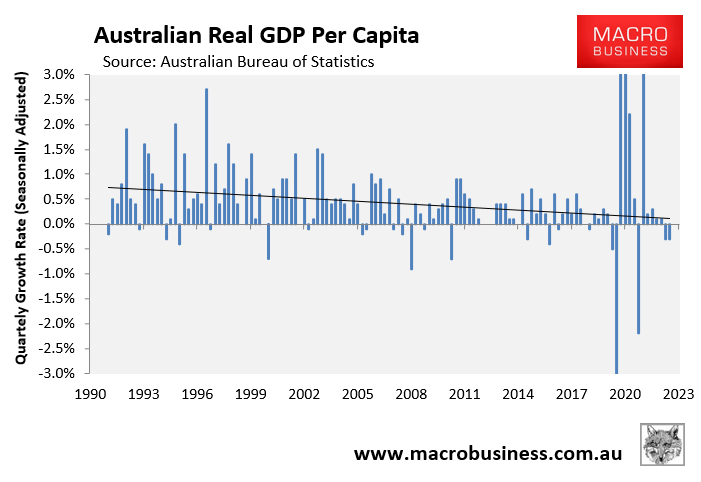
The next chart from IFM Investors chief economist, Alex Joiner, shows that record 2.4% immigration-driven population growth is behind the economy’s 2.1% GDP increase:

Source: Alex Joiner (IFM Investors)
Thus, Australia is in a position where the overall economy is still growing, but everybody’s share of the economic pie is shrinking at the same time as Australians are being shut out of housing and suffering from increasingly crush-loaded infrastructure.
The next chart shows how Australian households are suffering.
Real per capita household disposable income declined by 0.2% in the year to June, which has driven the decline in per capita growth:
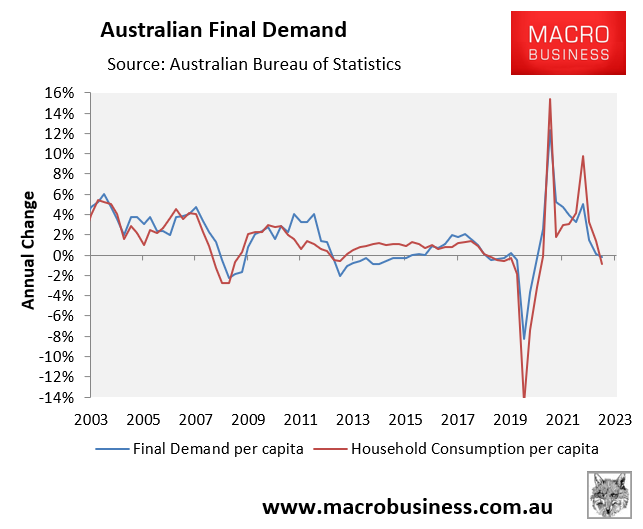
This decline in household consumption comes despite the household savings rate falling to to 3.2%, the lowest level since the June quarter 2008:
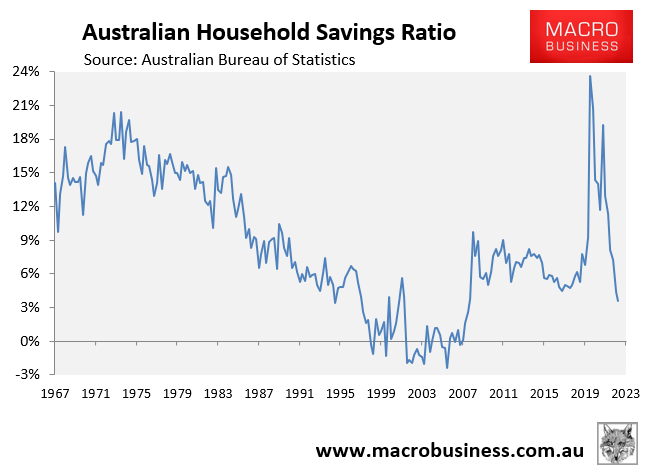
Clearly, households are being hit hard by the roughly doubling of mortgage interest repayments in the year to June:
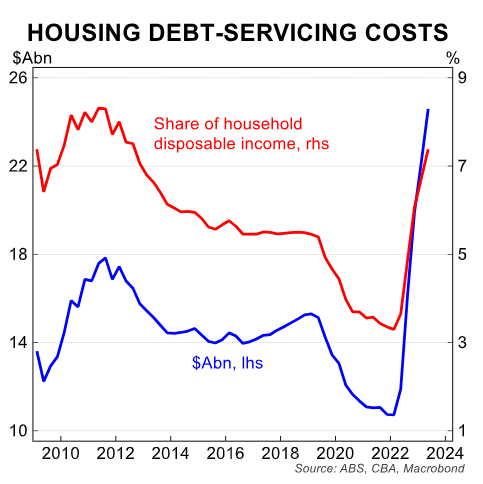
The situation for households will inevitably worsen for three reasons.
First, the unemployment rate is now rising in response to the weakening economy and the record increase in the nation’s labour supply (thanks to record net overseas migration):
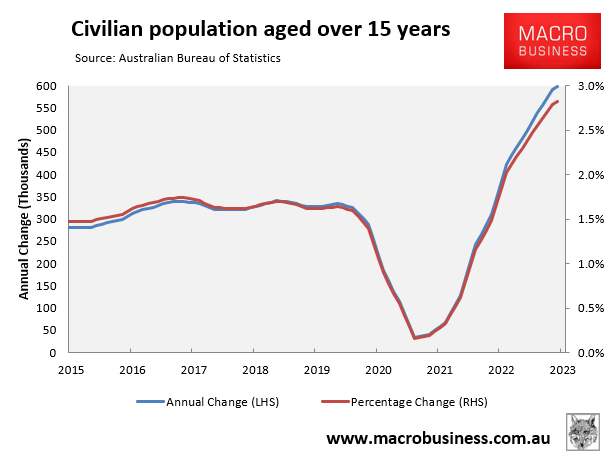
Second, average mortgage rates will continue to rise as more fixed rate mortgages roll over to higher variable rates:
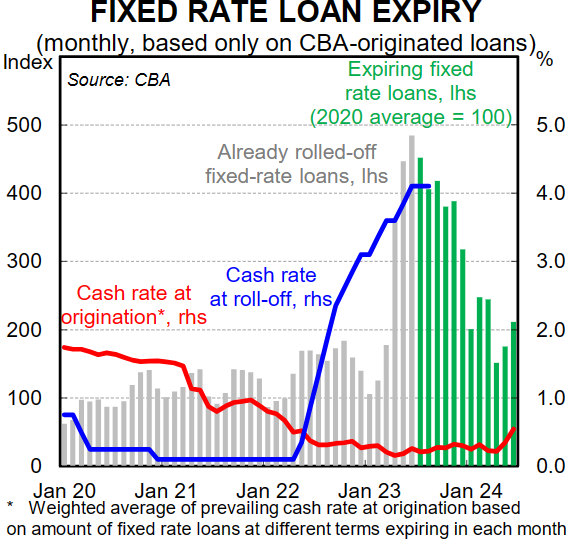
CBA recently estimated that $34 billion worth of fixed-rate mortgages expired over the six months to June 2023, with a further $52 billion expiring in the 6 months to December 2023.
In turn, only two-thirds of the current OCR increase has been felt by borrowers, but this will rise to around 85% by year’s end as more fixed rate mortgages roll onto variable.
Third, inflation is likely to remain above wage growth for several more quarters, meaning real incomes will continue to decline.
The Albanese Government’s unprecedented immigration program is papering over the economy’s cracks, while the situation facing Australian households continues to worsen and living standards collapse.

